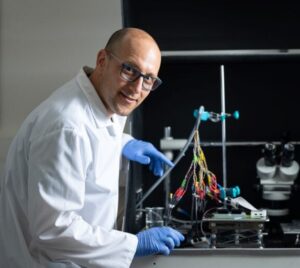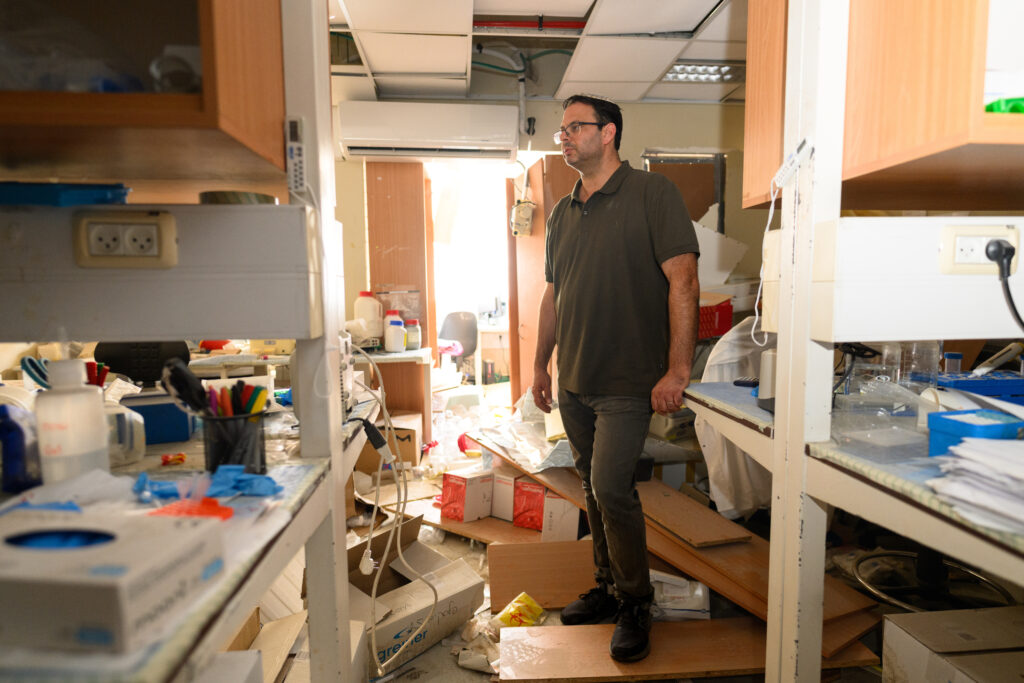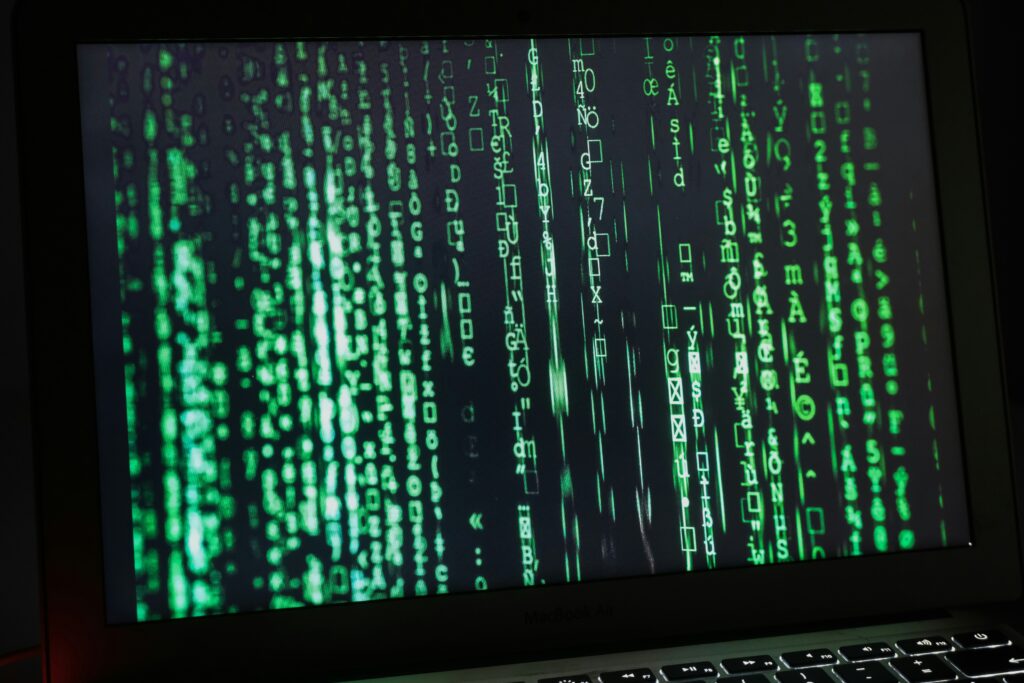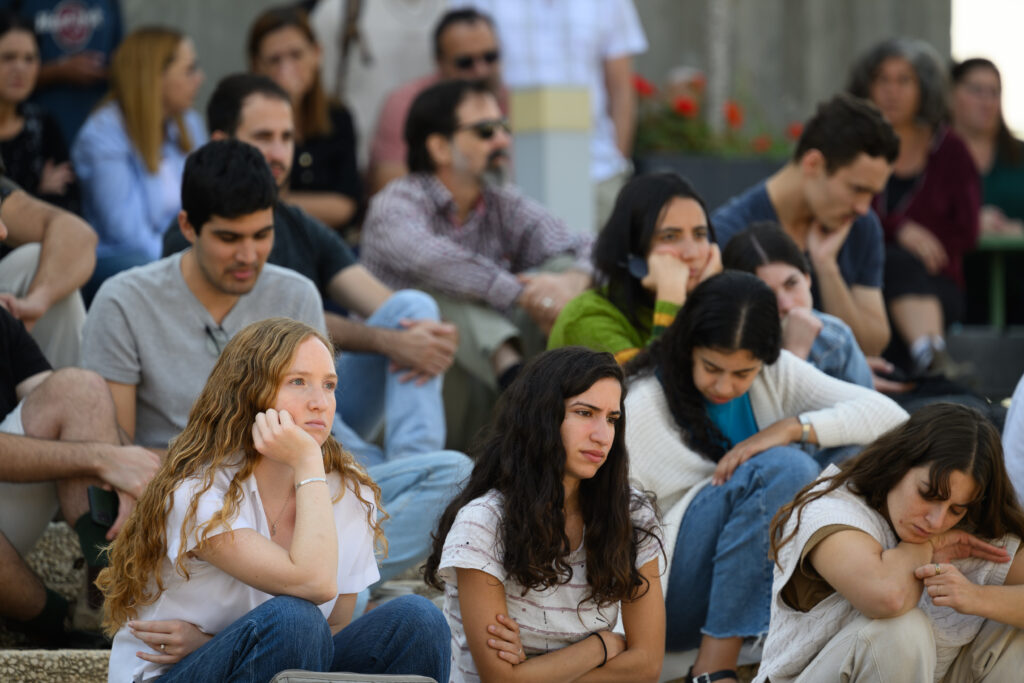
AI-Powered OncoRedox Detects Colon Cancer via Blood Test
AI-Powered OncoRedox Detects Colon Cancer via Blood Test
April 17, 2025
Israel21c – Colorectal cancer is the third most common cancer worldwide. While early detection significantly improves the chance of survival, traditional screening methods such as colonoscopy are costly, invasive and have low compliance rates.
The OncoRedox system, co-founded by Prof. Hadar Ben-Yoav, head of the Nanobioelectronics Laboratory (NBEL) at Ben-Gurion University of the Negev (BGU), is an innovative platform for the detection of colorectal cancer using a simple blood sample.
The system is based on an AI-powered disposable electrochemical sensor that generates a metabolic fingerprint of the reduction-oxidation (redox) state, which is the process of molecules in our body communicating and exchanging electrons.
The sensor enables highly accurate disease detection through plasma samples by analyzing the molecules in the blood “like a tongue with receptors” that “recognizes the taste” of cancer, “similar to how people respond to the taste of coffee, for instance,” says Prof. Ben-Yoav.
The research behind the OncoRedox technology was initiated at BGU more than 10 years ago. When Prof. Ben-Yoav’s wife’s cancer came back after being assured there was only a 4% chance, he decided there must be a better way to diagnose cancer, as well as other diseases.
Prof. Ben-Yoav says OncoRedox’s generic technology is “not specific to one type of disease; it is suitable for identifying other types of cancer, such as lung or bladder cancer.” Clinical proof-of-concept studies have so far demonstrated 94 percent accuracy in detecting colorectal cancer.
“We’ve seen a crazy increase in inflammatory bowel diseases over the past year because they’re related to stress,” Ben-Yoav tells ISRAEL21c. “There is a correlation between stress and the intestinal system.”
He says this extends to cancer, too.
“We all have cancer cells in our bodies at any given time, but the immune system takes care of them. Stress — both mental and physical – weakens the immune system and its ability to treat these cancer cells,” he explains.




